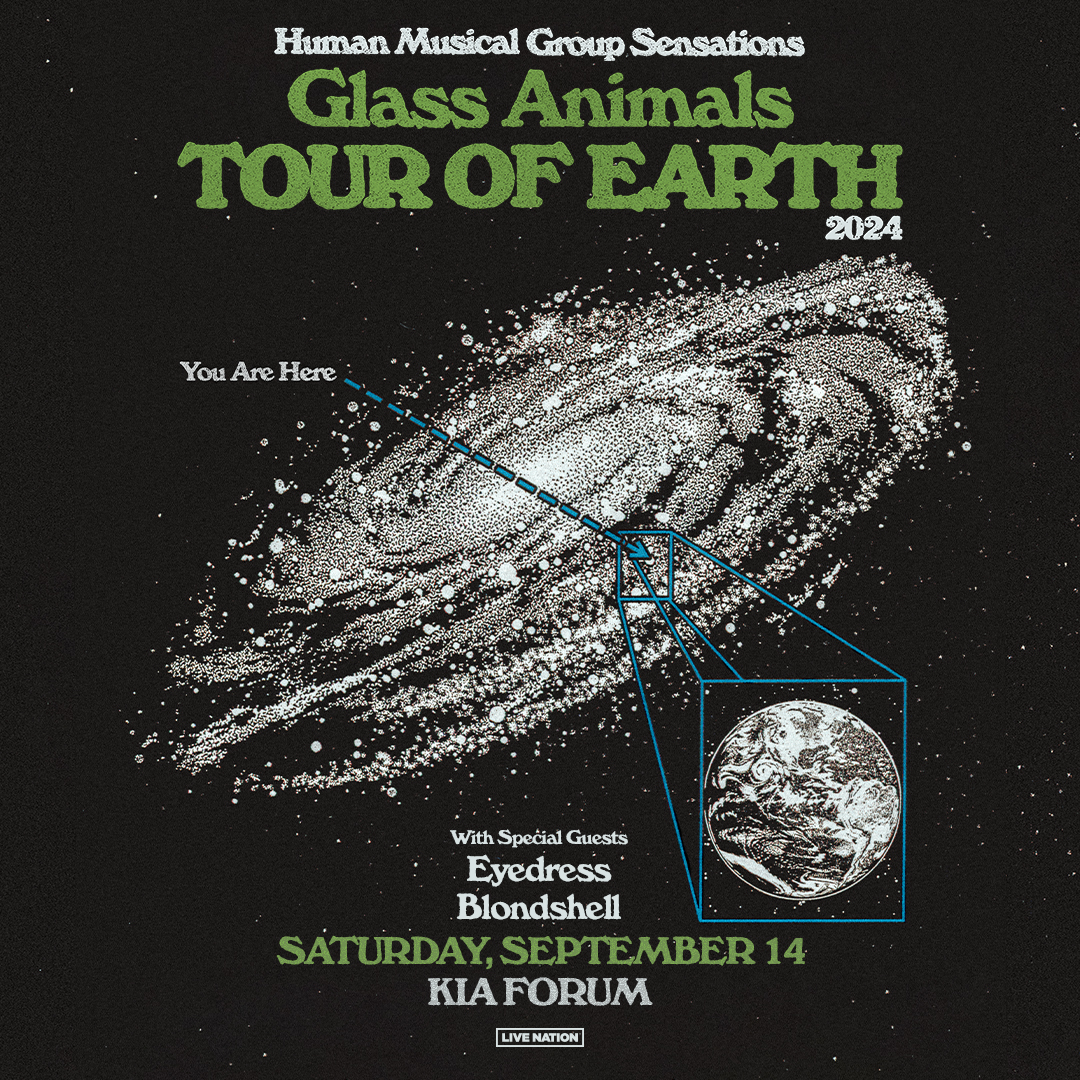Nanpa Basico’s style is already familiar with many audiences. Whether it’s the endless tattoos on the rapper’s body ranging from musical notes, an array of symmetrical figures all over his chest and forehead, and faces and names of people that marked important stages of his life or the refreshing homage to R&B and hip-hop he brings to listeners. Without a doubt, one of his most outstanding tattoos is the one written in cursive along the right side of his jawline with the word Resiliencia (Resistance).
As a rapper of the barrios of Colombia, Nanpa has been present in the music scene for fifteen years and has had to stay resilient in order to stand out in a country that is the birthplace of artists like J. Balvin, Maluma, Shakira, and many more. His music adopts a style much more in tune with the classic American hip-hop of the ’90s and early 2000s. But as a wordsmith and an MC, Nanpa finds the poetry of daily Millenial life through his lyricism and rhyme schemes.
“Porque Quise” is the second single released as part of a project before quarantine erupted due to COVID-19. Its R&B feeling and Nanpa’s sensual voice make it a perfect song to sit back and enjoy at home. With lines like “a mi me gustaría invitarle un vino/ me gustan mas baratos, saben mal los finos,” - "I would like to invite you to a wine/ I like the cheapest, they taste the finest," he identifies with a crowd that refuses the fancy stuff and tells a story about simply enjoying someone’s company intimately.
Enjoy the live version he did of "Porque Quise" below!
Nanpa’s music catalog contains songs like “tic-tac,” “la ultima,” “poeta” or “ya para que” that refresh the classic hip-hop sound to younger generations, especially to a growing crowd in Latin American countries. Like in the U.S., hip-hop carries a stigma of being associated only with gang crime, money, and women. But there is a growing wave of musicians that are challenging this stereotype much like Kanye West or Kid Cudi did back in the mid 2,000s. Now, the aesthetic of rappers has become more fluid, giving an opportunity for someone like Nanpa to continue growing.
Below are the music videos for Tic Tac and Poeta.
Nanpa shares a parallel history with artists like these, struggling to be accepted as a legitimate rapper for choosing to be “softer” in the topics he talks about and how he expresses it. Since 2004, the musician has overcome many challenges within Colombia to end up growing an international audience in places like Mexico where hip-hop has had at the very least an underground presence with groups like Control Machete or Cartel de Santa. But Nanpa belongs to a new generation of rappers, interested in aesthetics and depth of other daily life aspects.
I talked to him to better comprehend the story of the rapper; what he’s had to do to be where he is now and how his family and struggles have changed his life.
Nanpa thank you for taking the time to talk for a while, how has the pandemic affected you so far?
It has been difficult here in Colombia like in many other countries. Thankfully, it arrived here later so we had more time to react against the calamity. I feel like we’ve taken care of ourselves and compared to other places we have fewer cases. The health system has not collapsed so we’re staying positive and we’re taking a lot of precautions.
It’s a really cool single cover, what is the story behind the image and behind your newest song?
“Porque quise” is something conceptual that is part of a few songs we have been releasing. The name of the project is “back home,” and it’s basically four songs we’ve released a few days before the quarantine started in Colombia. The team got together and made the songs without them being so overworked. Before this single, we released “Tantas Veces” which was the first one. What we’re trying to say is that you can make music wherever you are. What matters is that you’re willing to do it, which was our motivation. And now that people are at home wanting some entertainment, as people of this industry is kind of our duty to provide people with new material.
You present yourself as a rapper and a “poet.” What is the relationship between these two and how do they differ?
I first fell in love with literature and then I understood that I could use rap to express what I felt, I understood that as a little kid and when I first started out I was doing it in a very explorative way from whatever I had in my hand because I come from the barrio and this was a way I found to release what I’d write. To me, depth is really important. Everyone has an ideal conception of music and what they think is most important, for me, literature is the most important within the music. So I can present my rap in different ways like during interludes, I’m reciting poetry or whatever song I’m writing no matter what genre, I’ve written rap, reggae, and I think I’ve never abandoned that approach. The structure of music is much like the structure of writing poetry.
It’s interesting that you talk about this, personally I think the new generations consume literature differently, one of them through music. In the subject of books, do you have any favorite writers or poets?
Books are just like music, you can’t really have a favorite. As your life changes, your favorite song changes. If I asked you a few years ago what your favorite songs are, I assure you, you won’t mention the same songs now. But, of course, I do have a favorite writer and his name is Mario Benedetti. He’s a writer from Uruguay. Poets have depth and it’s important how they’re using language, but to me that language has to be clear and assertive. When poetry becomes too complex people can’t identify with it, but we can make something out of poetry much more accessible and everyone involved in music is trying to do the same, give a place to literature but in a way people can understand.
Do you like making your own music videos? As an artist interested in aesthetics, how involved are you in the process of pairing your music with visual components?
I do get more involved in some more than others, I’ve directed a few. But to be honest I don’t get so much in the technicalities of it. I’m not an expert in illumination or things like that so I know how far I can go, if my idea is valid then the technicalities will start developing by itself.
What is the difference between the rap you produce and the Urbano genre in Colombia?
In Colombia, if you’re making music in another music genre it is very difficult to stand out. We have Shakira, Juanes, Balvin, Maluma, so standing out is a real challenge. There is a mainstream line, but below that, there is a smaller line-up of artists. I don’t know exactly where I am positioned but I love what I do. Whether it’s 10,000 or 100,000 there are people all over the world listening to us. People won’t always want to listen to Maluma or Juanes, sometimes they may want something more fresh outside of the mainstream.
The name Nanpa Basico is an homage to someone really close to you, what impact did this person have in your life?
Nanpa is a phrase written with an M before the P (nampa) but yes, this is an homage to the first song I ever wrote which was the story of my uncles. One of those uncles was my favorite, I really loved him. In that song I recorded, he told me he wanted me to make something that would transcend his own life. He told me, ‘every time they name you I want them to name me, too.’ I said, ‘cool, let’s find a way to make that happen.’ His name was Hernan Dario but he’d go by Nan and since he’d call me Pancho Paisa, we combined them. I promised him every timed they named me they’d name him too, so that’s how I kept it.
How long ago did you record your first song?
That was fifteen years ago. I recorded it in 2004.
15 years since you started making music and now you’ve also had the opportunity to raise a family. For some artists that may be difficult, but has your career affected the relationship with your family?
I think there’s two ways of seeing it. For sure, you want to reach your goals. Wanting to become a musician and giving it all complicates things, but I still don’t miss any family birthdays, new years, etc. It does complicate my love relationship since I’m on tour for two months then come back home for two weeks and I’m flying every week, but that’s the cost of dreaming. For a very long time I was frustrated, le di mucho palo, like we say here in Colombia, for a lot of reasons that I felt as a father I thought I needed to teach my kids to dream. Most parents teach us how to live and that’s okay but teaching us how to dream is a real challenge. I’ve taught them how to love me without missing me so much. It’s good for their mental health and mine and I know they can understand it. You have to adapt to the kind of lifestyle you have, it’s not the same as being a dad that is always home compared to a musician dad that is not home for half of the year.
Have you dedicated any of your songs to your children?
Of course, I have a song named “melancolia y descendencia” and I dedicated it to my boys. I sang it right after my son was born. Right now my youngest is 7 months old, his name is Maximiliano.
Congratulations! What can you tell me about your university studies in social work?
I didn’t graduate but I finished seven semesters. Social Work is a combination of anthropology, psychology, and sociology. And it’s studying societies, groups, etc. It helped me better understand how the world works, of course, you first learn that as a kid, but here it’s more advanced. I was always close to my community, I grew up poor and I’m proud of it, so I know how the barrio works and its necessities. Social work then focuses on that but more technical and it works, you actually have to read a lot even though it’s not poetry, you have to learn policy, statistics, information, etc. You have to develop as a person, not just as a musician. You have to access knowledge any way you can and however, you want.
Is there anything you want to add? What projects are you working on for the rest of 2020?
I want to tell everyone listening/reading this not to give up on their dreams. Most people think life gives them signs to give up but it’s the opposite, it gives you signs so you become stronger. Also, I’m producing my album “Unicornio.” We’re looking to release it at the end of this year or beginning next year. There may be some delays because of what’s going on. I’ll keep releasing singles, collaborating with artists from all over Latin America. Thank you for this interview.
Thank you for talking to me as well and I hope to meet you in person. Best wishes to your team and your family.












